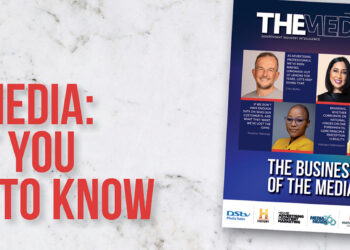At the end of 2019, no one could have anticipated that business and our personal lives would do a complete 180 in just a few short months into the new year. The businesses that survived were the ones that adapted.
Before March 2020, it had been business as usual for us; then suddenly, the threat of a global pandemic changed everything. When lockdown was implemented, many businesses were forced to close temporarily, and some closures became permanent due to lack of trade. Hardest hit were hospitality and tourism, alcohol and tobacco producers, and those considered ‘non-essential services’.
This not only caused job losses, but also impacted our economy and everyone’s morale. Employees working from home felt disconnected from colleagues and the direct guidance of supervisors.
Media companies also took a beating and some long-standing institutions closed doors for good. In the midst of all the negatives, however, there were positives. In many cases, productivity increased with people working from home, and a burst in digital communication created new opportunities. We had to use different ways of communicating, such as harnessing influencers’ live platforms to get our message across.
During this time three significant media trends emerged:
- A demand for personalised content
- A reliance on PR for brand content
- A need for local data-driven content
Journalists wanted personalised, exclusive content to entice and entertain their audiences, and as newsrooms shrank, the industry became more reliant on PR agencies to provide this content. And it had to be local – international brands had to get used to adapting content to suit the South African market.
Brands began to connect with diverse groups on a more emotional level, and it became important for them to get to know their consumers as well as they knew themselves. Consumers want brands that engage with social issues through honest, meaningful conversations using chatbots, social messaging, calls and more. They crave authenticity and are attracted to brands they feel they can trust.
Finding opportunities
Thankfully our agency adapted quickly. Working remotely was not foreign to us; we had operated this way before by choice, but Covid-19 made it the new normal. We’ve continued to offer our employees the flexibility to manage their working hours at home, with the option of working at the office when needed.
Our CEO, Steve Powell, gave us a straightforward vision for 2020, aptly named GO2020: Growth and Opportunities in 2020. We got behind the vision, but it just meant that we needed to keep going. We were there for our clients, they felt supported and heard, and we kept delivering.
We supported them through their business challenges, and we kept guiding their growth. This in turn had a positive effect on our own growth – apart from securing global and local accounts like Pfizer South Africa, Veeam, McCain and Country Road Group, we also managed to pick up numerous awards in 2020. We added two new business units, with AMP catering to the arts and entertainment industry, and Collide specialising in digital and print design and events, including hybrid and virtual offerings.
We realised diversifying was essential, but also in terms of acquiring new skills like digital and design, entering new markets like Africa, and employing people from diverse backgrounds. We grew our staff complement by 20% at a time when many companies were downsizing.
Moving forward
For businesses to thrive in the future, digitalisation is key, not only for internal communications, but to connect and relate to clients too. We advise our clients to spend more time adapting their websites and digital platforms, and targeting consumers in-home vs out-of-home. It’s also about purpose-driven work – because consumers increasingly resonate more with brands that put purpose above profit.
When connecting with employees, there’s no one-size-fits-all approach: businesses need to be cognisant of their workforce, what appeals to them, when it appeals to them and on what platform. Digitalisation is incredibly important to consider but so is measurement. The impact of efforts must be measured with constant evolution and adaptation. Employees will have more ‘freedom and responsibility’ to decide where, when and how they do their best work, and employers need to design the infrastructure to enable this approach.
I believe we need to embrace the possibilities that the future holds rather than hold on to ‘the good old days’. Going ‘back to normal’ will not enable growth; we consistently need to define our ‘new normal’. It’s important to keep evaluating where you are and where you want to be, and take opportunities and risks, because you need to evolve and adapt.
Much of what was learned in 2020 will continue to shape the communications landscape in 2021 and beyond. I urge businesses to dump old stereotypical ideas about how work used to be, and consider how work should and could be for their businesses and staff. Guide your team and trust them to create their own ‘new normal’ – one that suits them and your business.

Cheryl Reddy is managing director of the Johannesburg operations of Eclipse Communications and Africa Hub lead. With Reddy at the helm, Eclipse Communications was named 2020 Best Large PR Consultancy at the PRISM Awards, held by Public Relations Institute of Southern Africa (PRISA) and ended the year with the 2020 Financial Mail AdFocus PR Agency of the Year Award.














